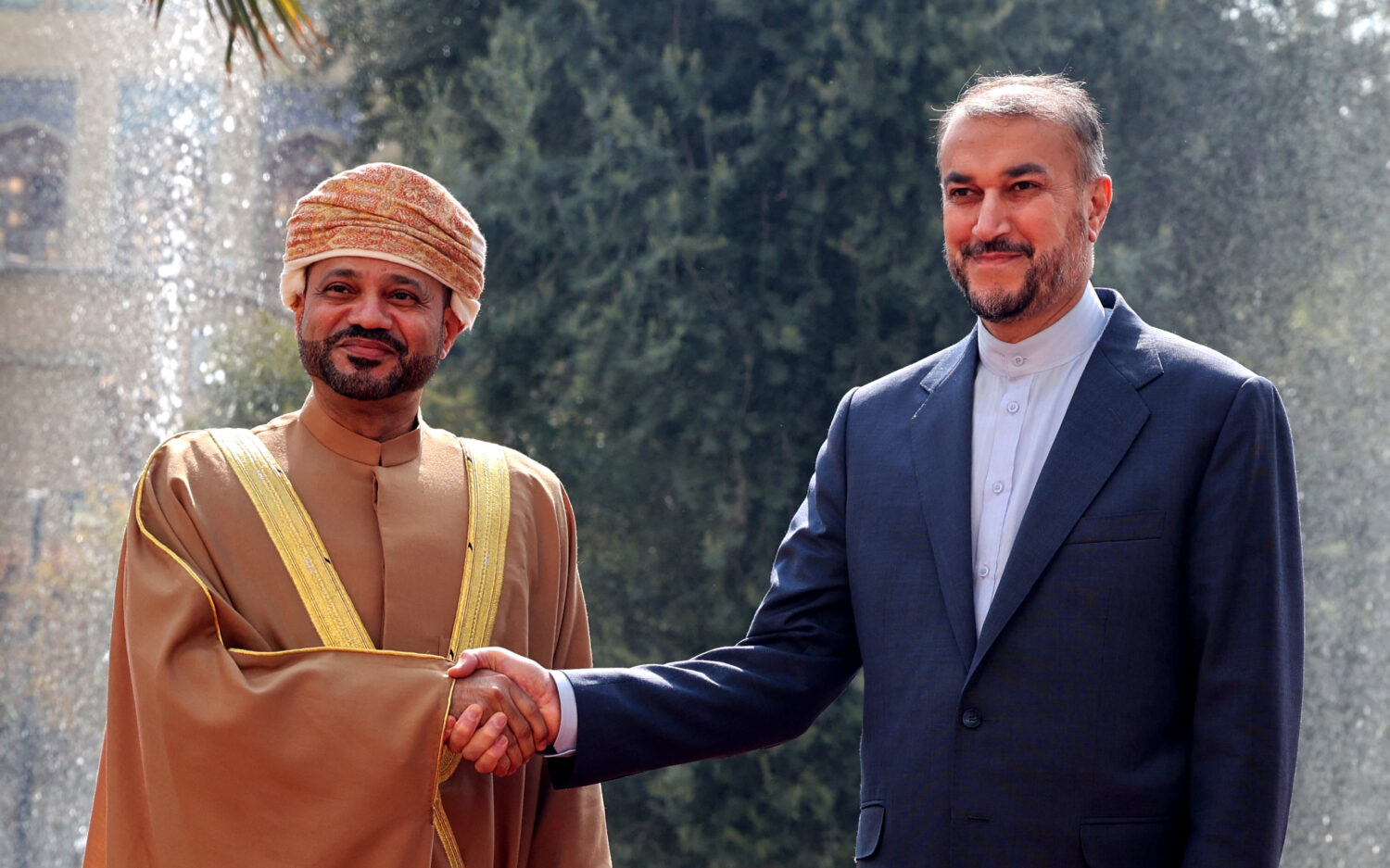
Youssef Sharqawi
Since the 1970s, the Sultanate of Oman has started a long path toward development. Previously, it was one of the poorest and most isolated countries. Nowadays, the Arabian Humanities describes the progress of the Sultanate as comprehensive.
The Sultanate’s openness to the outside world and the modern economy led to unprecedented economic and social revolution.
Half a century later, the Sultanate is witnessing a diverse society that combines history, heritage and modernity as a solid basis for its identity in the Gulf region and beyond. The Sultanate also derives its strength from the undeniable historical and cultural link between the Arab world in Asia, East Africa and the Indian subcontinent in the 21st century.
Domestically and Internationally
Since 2017, Oman has advanced its ranking in various international indicators, such as the starting a business index, the rule of law index, the institution’s efficiency index, the political environment index, and the economic environment index. The ruling regime also excels in the political stability index, the absence of violence, organisational ecology, and other indicators related to a knowledge-based economy, innovation and quality of life.
This progress across the board, especially domestically, validates the government’s steps toward progress. In 2013, the late Sultan Qaboos bin Said proposed “ Oman 2040 ” and commissioned the current Sultan Haitham bin Tariq to helm the nationwide plan.
Oman 2040 is a vision based on three pillars: People and society, Economy and Development, and Governance and Institutional Performance. The Sultan approved it on Dec. 15, 2020. He said during the launch: “Oman Vision 2040 is the Sultanate’s gateway to overcome challenges, keep pace with regional and global changes, generate and seize opportunities to foster economic competitiveness and social well-being, stimulate growth, and build confidence in all economic, social and developmental relations nationwide.” The vision came into effect on Jan. 1, 2021, and will continue until Dec. 31, 2040.
In his book “Oman Vision 2040: The pressures of questions and the merits of the answers,” Dr. Yousuf Hamad al Balushi referred to the vision as the mental image of Future Oman everyone envisions. Nonetheless, Balushi points out that his fear of not undertaking economic and financial solutions will be counterproductive.
Even a delay will cause the Omani citizen and the nation to pay the price.” According to Balushi, “Enforcing the governance foundations requires willingness, concessions, accountability and institutional initiatives to achieve comprehensive and sustainable development.
This domestic progress raises questions about Oman’s regional role and the political changes it could trigger. The founding speech Sultan Haitham bin Tariq delivered two years ago was remarkable. It focused mainly on the inside. The Sultanate’s foreign policy was mentioned “generally, in a small section,” according to writer Khairallah Khairallah.
Questions relevant domestically and internationally: Does the Sultanate tend to be pragmatic in ignoring the problems surrounding its borders? Moreover, is it looking inwards for domestic development only? Also, why does Oman march to the beat of its own drums when it comes to Gulf politics?
The writer Badr al-Ibrahim explains : “Oman’s foreign policy is unique. It is not news that their policy is different from the rest of the Gulf Cooperation Council countries. For more than four decades since Sultan Qaboos ascended to the throne, there has been an Omani approach to regional issues that set itself apart from its Gulf neighbours. This is reflected in the relationship with Iran, the view of Arab-Arab disputes, or concerning conflicts in the Arab region.
According to al-Ibrahim, the Omani foreign policy is based on maintaining regional security and stability as an integral component of Oman’s internal stability. He explains how this approach made the Sultanate move towards “pragmatic, positive neutrality.” Hence, the Sultanate rejects regional axes, alliances or taking sides and instead weaves friendly relations with all sides in the region.
Ibrahim believes that the Sultanate’s pragmatism is evident in its ability to play the mediator role between conflicting parties and contribute to solving the problems in the region. This alleviates the instability in the region and curbs its danger to Oman’s internal stability.
Positively Neutral or Marching to Their Own Drums?

Oman rarely receives the same attention as its peers in the Gulf region. According to the Al Jazeera Centre for Studies, its policy of positive neutrality has kept it out of the spotlight for decades. A study by the centre titled “Oman: Sultan Haitham and the Foreign Policy Challenge” mentioned that Oman has traditionally sought to maintain positive neutrality within the Arab region.
However, Sultan Haitham bin Tariq will face two new challenges that emerged during the last decade. The first is the increasing influence of the United Arab E mirates and the difficulties it poses to Oman’s political role. Furthermore, the alliance between the UAE and Saudi Arabia and their close relationship with the United States’ administration adds a new layer of complexity to the situation in Yemen.
The second challenge is the economic development that the political leadership aspires to achieve by 2040.
Aql al-Bahli explains that the Sultanate is always looking for a state of social harmony, especially when troubling situations erupt between countries. Bahli says that the situation in Oman is different from other Gulf countries. The presence of ideological, religious and sectarian pluralism in Oman requires Muscat to build regionally balanced relations.
According to The New Khalij news, Oman was the most prominent opponent of the Gulf union or Gulf confederation project that Saudi Arabia proposed in 2011 and even threatened to withdraw from the GCC. It has also disrupted the project of unifying the currency because it feared this might undermine the Sultanate’s sovereignty. It became known as the “Omani Knot” in academic and press circles.
One of the reasons for this is the Sultanate’s attitude toward Iran. The writer Badr al-Ibrahim interprets the “Omani Knot” regarding a Gulf alliance as a direct move against Iran. Oman must carefully consider its partnership with Iran in the strategic Strait of Hormuz and the commercial and oil interests that link both countries together.
Of course, these considerations circle back to questioning the positive neutrality and pragmatism.
This pragmatism is confirmed by the report published by Basma Mubarak Saeed, a researcher in the Al Jazeera Centre for Studies, titled: “On Oman and the Issues of Approaching Iran and the Unity of the Gulf.”
The researcher says that the Omani foreign policy has always been based on pragmatism distanced from emotions and ideological rhetoric. According to Saeed, this approach cannot easily integrate with the foreign policy of other Gulf countries. Simultaneously, Oman does not want to be dragged into regional conflicts and proxy wars. This includes Oman’s cautious stance regarding Egypt and Syria.
As a result, the Sultanate remains the “Switzerland of the Middle East,” according to Hasan Ismaik, as It has not severed any diplomatic relations with any country. Oman was one of only two Arab League countries, besides Sudan, that did not boycott Egypt after signing a peace treaty with Israel in 1979.
Oman is also the only GCC member that has remained neutral throughout the Iran-Iraq war (1980 – 1988). Furthermore, The Sultanate was the only member that maintained diplomatic relations with Syria since 2011.
It has not joined the boycott of Qatar led by Saudi Arabia and the UAE from mid-2017 up until January 2021. Finally, it is the only GCC member that has not joined the Saudi-led military campaign against the Houthis. It is the only Gulf state that conducts joint military exercises with Iran.
Peaceful Oasis… or?
“Oman is ruled by an absolute monarchy ; the sultan is both head of state, head of government and the Supreme Commander of the Armed Forces”. Also, Sultan Qaboos was the sole ruler known to many Omanis.
According to a study published by the Arab Reform Initiative in cooperation with Chatham House, he enjoyed significant primacy as he was not viewed as a successor. The study mentions how the positive steps toward liberalisation over the past three decades were insufficient. “the country’s constrained political climate creates a power imbalance in favour of the state, making it difficult for contestation to take place as political freedoms remain limited.”
The study analyses the exaggerated claims that portray the Sultanate as an “oasis of peace.” It presents an analysis of the relationship between the regime and the opposition. It concludes that the political system in Oman will face increasing resentment due to social and economic difficulties. It must open the political space for opposition instead of repressing it.


